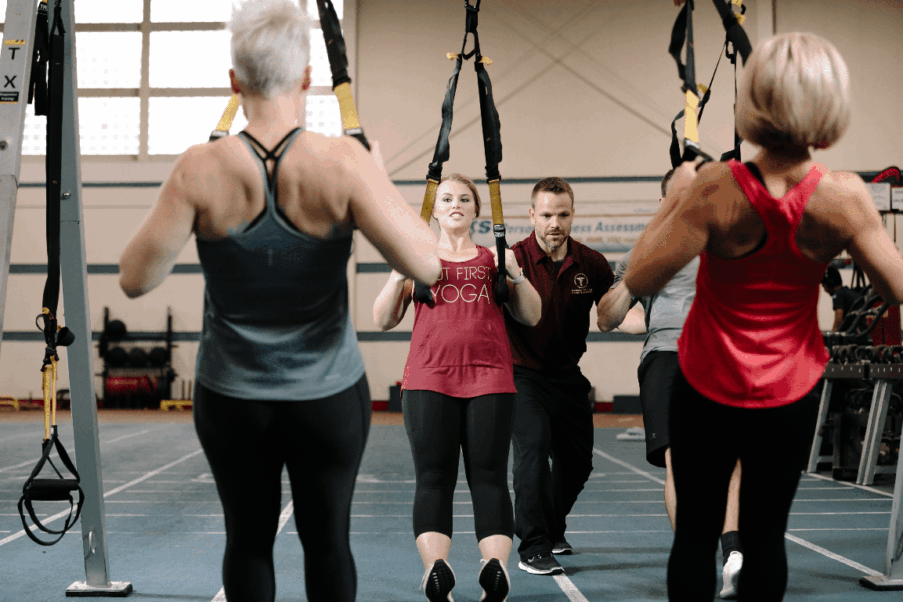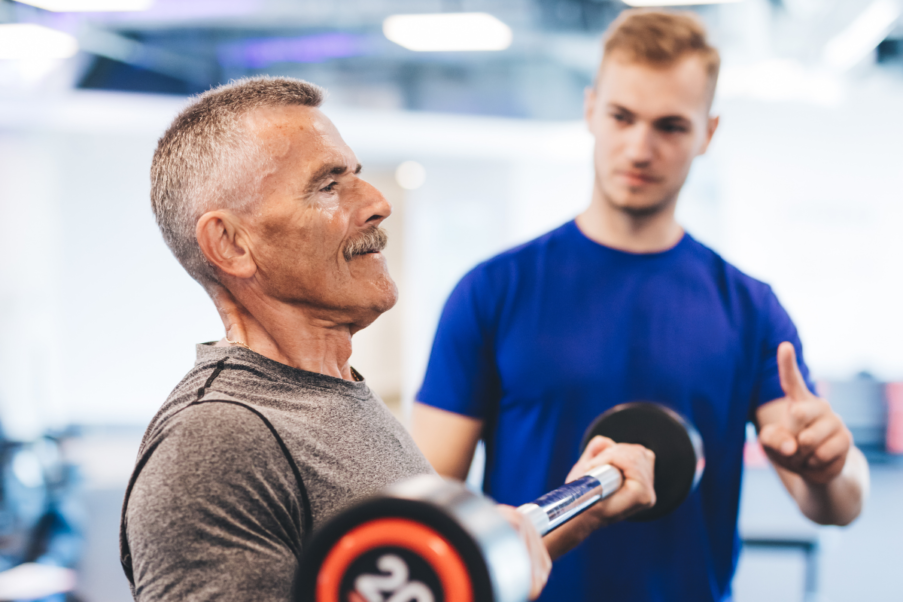How to Choose a Quality Fitness Instructor
What makes an exercise class enjoyable and effective? Is it the music, the movements or the feeling of camaraderie among the students? The factor underlying all these aspects is the instructor. A knowledgeable fitness instructor, who’s able to engage and motivate the students, determines the quality of the class. Remember, a good instructor realizes the focus of the class should be on exercising to improve or maintain your health, not just on working out to look better.
So if you’re considering taking — or already participate in — a cycling, step, rowing, strength training, in-line skating, boxing-based or other type of fitness class, the following questions will assist you in evaluating an instructor’s credentials and help you make the most of your exercise class.
15 Points to Help You Select a High-Quality Instructor
1) Is the instructor certified by a nationally recognized organization or a recognized equivalent? Is the instructor trained in anatomy, exercise physiology, injury prevention, first aid and monitoring of exercise?
To conduct a class that gives you a safe and effective workout, an instructor needs a good grounding in exercise science and exercise technique. An exercise certification indicates that the instructor has at least basic knowledge in areas necessary to teach a quality class. You can check with the instructor, fitness director or facility owner/manager to verify what kind of education, training and certification the instructor has.
2) Does the instructor belong to a professional fitness association such as IDEA or IHRSA to keep current with the latest exercise science and techniques?
The fitness industry is changing all the time so it is crucial that an instructor know the latest research and trends so they conduct a safe and effective class. Membership in a professional fitness association is one way you can tell that an instructor is staying current.
3) Does the instructor ask about medical conditions and previous injuries that may affect your exercise program?
Many medical conditions can affect your participation in a fitness program and a good instructor will help you make the most of class without compromising your health.
4) Is the instructor certified in cardiopulmonary resuscitation (CPR)?
Exercisers of all ages and ranges of medical backgrounds take group exercise classes. CPR training enables an instructor know what to do in case of a medical emergency.
5) Does the instructor ask about your current level of fitness? Does the instructor provide modifications of exercises or alternatives for students of varying fitness levels or with special limitations?
An instructor should be able to show moves that are suitable for beginning, intermediate and advanced participants and those with a variety of health concerns. An instructor should encourage you to go at your own pace and to stop and rest if you feel pain or fatigue.
6) Does the instructor explain the benefits of each exercise and demonstrate how to do each one correctly and in a controlled manner?
Your instructor should let your know which muscles you are working and how to exercise using proper technique. The instructor shouldn’t set a pace faster than a majority of the class can keep up with.
7) Does the instructor explain the importance of heart rate monitoring and perceived exertion and have students check levels during class?
For an effective cardiovascular workout, participants need to exercise at a certain intensity during class. The instructor should either have you take your pulse rate or teach you the perceived exertion scale and ask you to rate your exertion during class.
8) Does the instructor move around the room to give individual instruction?
A good instructor will move throughout the class at different points to check for proper technique and to get to know participants.
9) Can the instructor be heard clearly above the music?
The music used in class should be exciting and motivate you to exercise. But the movement directions and the safety reminders the instructor gives are important so you should be able to hear these above the music.
10) Does the class move smoothly from one type of activity to the next?
A fitness class should be well organized and an instructor shouldn’t need to stop and think between sections. The class should also start with warm up exercises and end with cool-down and stretching exercises.
11) Does the instructor encourage a noncompetitive atmosphere that allows all participants to work out at their own level?
A good instructor will make all students feel like winners. You should never feel you have to keep up with more advanced exercisers. All shapes and sizes of exercisers should feel welcome in the class and all students should be encouraged.
12) Is the instructor friendly and interested in you as a person?
Does the instructor make an attempt to learn your name? Do you feel like the instructor really cares about you and your well-being? A good instructor will make an effort to build a one-on-one relationship with regular students.
13) Does the instructor interact with the students most of the time or does he or she look into the mirror more frequently?
An instructor should never focus on his or her own workout before helping you have an effective, safe and enjoyable class. A good instructor will be interested in what you are doing not in his or her own movements.
14) Will the instructor answer questions before or after class?
A qualified instructor will be happy to explain moves you don’t understand. He or she should be eager to share health and fitness knowledge with you and provide advice on how you can improve your fitness level in class.
15) Does the instructor create a fun atmosphere?
You may be able to answer “yes” to all of the above questions but if you don’t have fun in class, you probably won’t stick with it for long. An instructor’s enthusiastic personality and manner should help you enjoy the class.
IDEA members may reproduce this information in a business newsletter or in handouts they distribute to their customers and staff as long as the information is reproduced verbatim with no changes or editing. In addition, the author’s byline (where applicable) must be reproduced completely and the IDEA Health & Fitness Association must be credited as the source of the information.
For other uses, contact IDEA Permissions at:
phone: (858) 535-8979
fax: (858) 535-8234
E-mail: content@ideafit.com
10455 Pacific Center Court San Diego, CA 92121-4339
IDEA FitnessConnect
Looking for a fitness professional, fitness facility, or class? Search IDEA FitnessConnect, the largest directory of personal trainers and fitness instructors, with the most verified profile information from the most trusted certifications in fitness.





